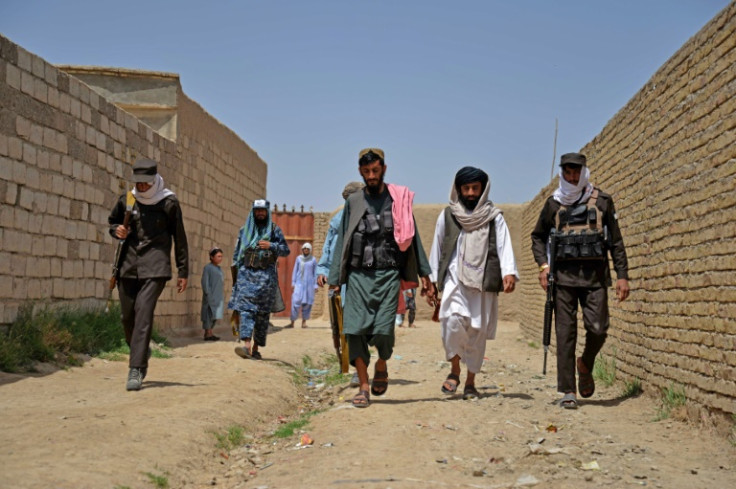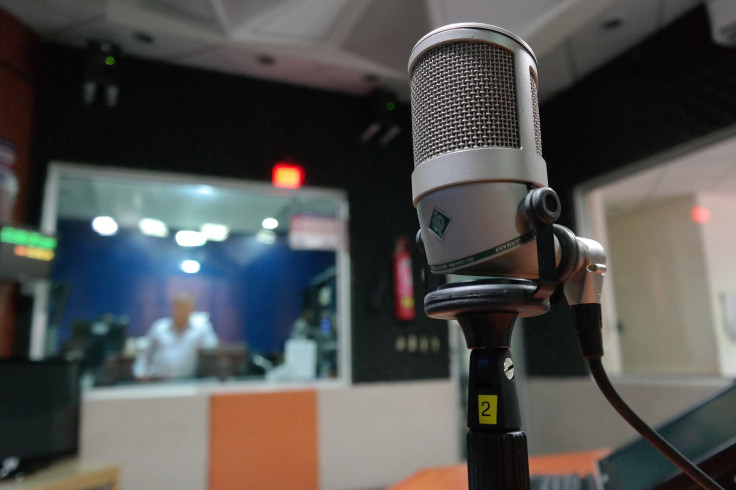Journalists Detained By Taliban For Airing Music On TV Shows Finally Released

KEY POINTS
- Four journalists were detained by the Taliban for two days after being summoned for a seminar
- A local journalist revealed that the detained journalists aired music on TV at the end of Ramadan
- The Taliban group shut down a local women's radio station for airing music
Afghanistan's Taliban government has released four journalists after spending two days in detention.
Voice of America reported, citing a statement from the Afghan Journalists Safety Committee (AJSC), that Sakhi Sarwar Miakhil, editor in chief of Gharghasht TV; Pamir Andish, editor in chief of Cheenar Radio; Abdul Rahman Ashna of Nan FM, and Mohammaduddin Shah Khiali, editor in chief of Wolas Ghag Radio were released by the Taliban after detaining them in the southeastern Afghan province of Khost.
AJSC said the four Afghan journalists were detained last Monday by the Taliban's Ministry for the Promotion of Virtue and Prevention of Vice after they were summoned to attend a "reform seminar."
But a local journalist familiar with the case who requested anonymity for fear of reprisal revealed that the Taliban detained the journalists for airing entertainment shows last month during the Eid celebration marking the end of Ramadan.
"It was because in some of the shows [for Eid], music was played. There were entertainment shows, possibly with female voices," the unnamed journalist said.
Last month, the Taliban clamped down a local women's radio station in the northeastern province of Badakhshan for airing music.
In a separate VOA report, Mazuddin Ahmadi, the Taliban's director of information and culture for Badakhshan, said that Radio Sada-e-Banowan (Voice of Women Radio) was shut down after it "violated policies."
"Unfortunately, during the month of Ramadan, they ignored several warnings and aired music. Finally, yesterday, after consulting with elders, we closed the radio station," Ahmadi said.
The Taliban official said the closure was "temporary" and would allow the radio station to go on air again once they received assurance that it would not air music again.
In August 2021, amid the chaotic U.S. withdrawal from Afghanistan, the Taliban announced it would ban airing music in public because it is "un-Islamic."
"Music is forbidden in Islam," Taliban's chief spokesperson Zabihullah Mujahid told the New York Times.
But the policy has created "confusion" among the journalists, Gul Mohammad Graan, the president of the Afghan chapter of the South Asian Association of Reporters Club and Journalists Forum, said.
Graan said journalists "do not know what to air and what not to" and blamed the confusion on the "interference" of different Taliban government agencies.
Sumaya Walizada, a spokesperson for the Afghanistan Journalists Center, noted that Afghanistan's mass media law prohibits the government from interfering in media.
To fill the vacuum in Afghanistan's music industry, the Taliban has launched singsongs, which sound like chants with no music.
Taliban's songs are voiced only by men, and their lyrics are about praises to the movement's leaders and Islamic jihad.

© Copyright IBTimes 2024. All rights reserved.





















